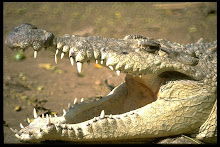Pages: 147
Pages read so far: 2187
Average pages/book: 312.43
Flatland is, I think, pretty much everything everybody cited in the post before claimed it to be. At first, I called it the "nerdiest book I have ever read," and it was true. The first seventy or so pages address the physics of what it would be like to live in a world of two-dimensions: how do these entities recognize one another? How do they differentiate between other shapes? What affect have sharp angles when they come in contact with flat sides? It's all very well thought out and written in such a way that it's still interesting to read, even if it is essentially high school geometric theory to the nth degree, where n = someone-spent-way-too-much-time-thinking-about-this.
Throughout this section and the sections that follow, the book seems to be a running social commentary as well, and since I'm not terribly well-versed in Abbot's society I don't feel qualified to comment on it, but there were a few points toward the middle when it started to lose me.
I found the debate amusing as poor A. Square attempted in vain to explain the complexities of two dimensions to the king of line land, and when you hear Square using the exact same arguments when the great Sphere enters his world, you get the feeling that Flatland is about more than the time and place immediately surrounding Edwin Abbot (whose middle name was also Abbot, it turns out). I felt it touched on all our natural inclination to create the world in our image, to broaden the horizons of those who know less than we do, but to vehemently deny that there is a bigger picture than our own big picture. Square's unfortunate downfall is also a bit of a foregone conclusion, as Abbot's picture of mankind is somewhat bleak and closed-minded (though not entirely off the mark).
I'm not certain what Abbot's intent in writing Flatland was, nor whether or not he felt he achieved it. Regardless, it's a fairly quick read, and an interesting one, where story is clearly not the defining element but is present enough to make for an enjoyable read. (Admittedly, had it gone on for much longer, the thing may have started to grow annoying)
This seems to me an unsatisfactory reflection on this book; however, it's a difficult book to reflect back upon, so I'm just going to post it and move on with life.
Subscribe to:
Post Comments (Atom)

That doesn't sound like as much fun as I was hoping it would...sound...like.
ReplyDeleteLemme try that again: PASS.